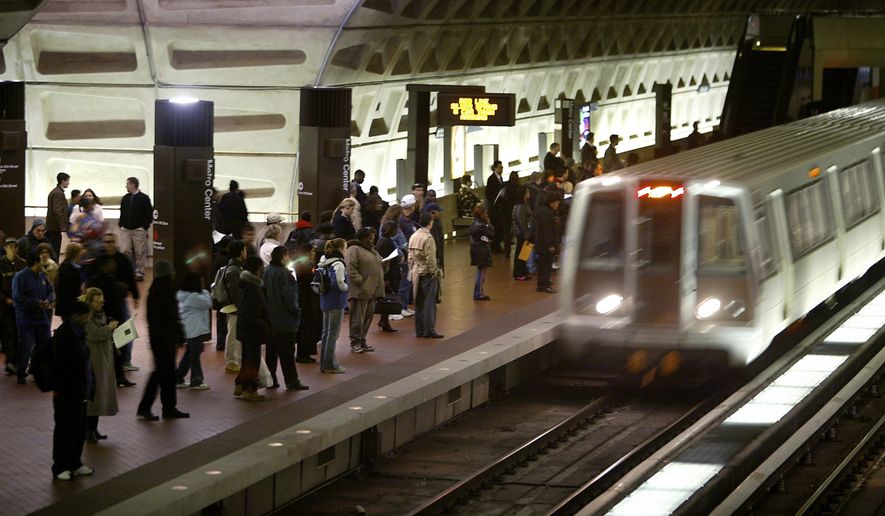The Metro Board of Directors heard directly from riders and their advocates Thursday about the transit agency’s plan to cut bus routes and increase fares as part of the fiscal 2021 budget.
During Thursday’s meeting, the directors also received a briefing on how the Washington Metropolitan Area Transit Authority is preparing to deal with the coronavirus.
“I am begging you not to cut any buses, strengthen them,” said Denise Rush, a member of Metro’s Accessibility Advisory Committee. “You are putting blood clots in the system.”
Ms. Rush said she had tears in her eyes during budget hearings this week when she heard people’s pleas to the board to not cut any bus routes. It reminded her of how she felt when she lost her eyesight and didn’t know how she was going to get around, she said.
The Accessibility Advisory Committee delivered the Metro Board a report of its concerns about the agency’s proposals, including imposing a surcharge of 25 cents for bus riders paying in cash, setting a $2 flat fare on the weekend, increasing rail fares during peak hours by 25 cents and changing fares based on trip length.
Ansel Torres criticized Metro for not even making the budget available to people who are blind, which he called “depressing.”
“Documents as important as the budget are not accessible for people who are blind,” said Mr. Torres, who is blind. “I am told it is not meant to be available until March 2, which is the last day of public comment.”
Metro Board Chairman Paul Smedberg said the directors have heard from more than 8,500 people in their online survey about the budget and more than 200 people who attended the three public hearings in Maryland, Virginia and the District.
“We are hearing a lot of good feedback from the public, a lot of focus has been primarily on the bus issue, and the bus routes that are up for potential cuts,” Mr. Smedberg said. “But that’s the purpose of this, is to get that input, take it all in and we will evaluate those comments and work with staff to see if there are any changes we need to make.”
Mr. Smedberg responded to questions from the press about D.C. Mayor Muriel Bowser’s Wednesday rally for extended subway hours, saying said he thinks the general manager’s plan to extend weekday hours by a half hour and weekend hours by an hour is reasonable and allows for them to continue to do maintenance.
“We are trying to strike that balance and be respectful of people who want longer hours,” the chairman said.
Miss Bowser released on Wednesday the District’ first-ever study on the economic impact of the nightlife industry. It found that business between 5 an 9 p.m. accounts for more than 68% of the revenue for nightclubs and 50% of that for bars. Many business owners cited late-night transportation as a major challenge.
Before June 2016, when Metro launched its SafeTrack maintenance program, subway trains had run until midnight on weekdays and 3 a.m. on weekends. Trains currently run until 11:30 p.m. Monday-Thursday, 1 a.m. Friday-Saturday and 11 p.m. Sunday.
Metro Chief Safety Officer Theresa Impastado briefed the board on the agency’s response to the coronavirus, which has not been reported anywhere in the region.
Ms. Impastado said Metro activated Phase One of its four-phase plan a month ago, increasing stocks of cleaning supplies and personal protective equipment by 25% and sanitizing surfaces about twice a week. Phase Two would be activated if a local case is diagnosed.
“We can disinfect surfaces on Metro, in fact we can step that up 10 times, and it still won’t be as effective as just good personal hygiene on part of the million people who ride our buses and trains,” said Dan Stessel, chief communications officer for Metro.
• Sophie Kaplan can be reached at skaplan@washingtontimes.com.




Please read our comment policy before commenting.